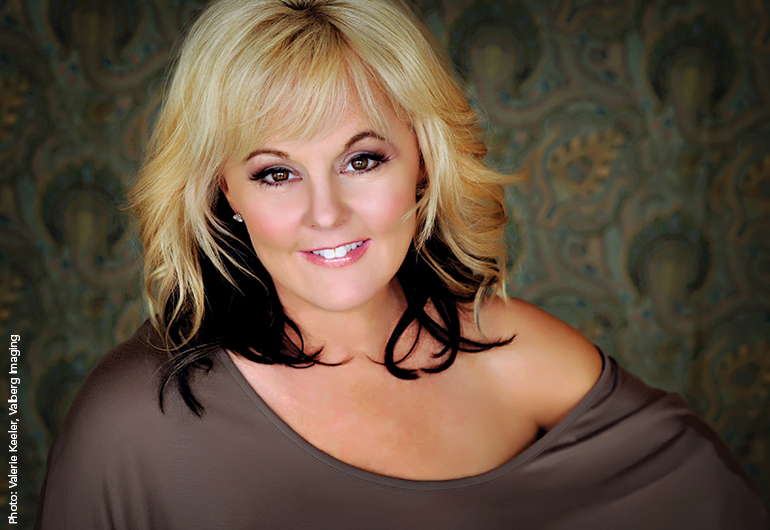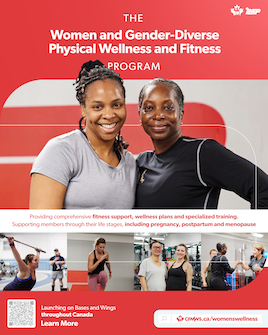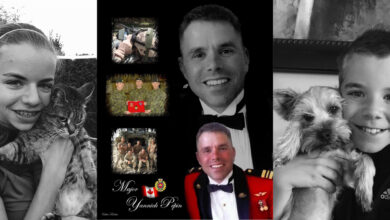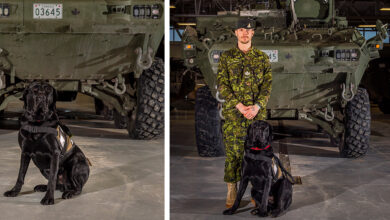Canadian figure skater Elizabeth Manley was well on her way to realizing her Olympic dream when her whole world came crashing down.
As the only girl in a family of aspiring hockey stars, little Elizabeth quickly realized that her only hope of standing out was showing her three brothers that she could be a champion on ice too. While the boys were doing hockey drills at the hockey rink in Trenton, Ontario, she was practicing figure eights on another nearby ice surface. Her mother Joan gave Liz her first skating lessons and motivated Liz with candy! Joan would stand on one side of the boards, shaking a box of Smarties and Elizabeth would go flying across the ice for the Smarties but by the time she got her mittens off to eat the candy her mom was already on the other side shaking the box again.
After several years of winning locally and then national figure skating awards and titles, Liz was ready to move on to the next level: competing on the world stage and ultimately the Olympics. That meant moving to Lake Placid, New York, far from her family and the support system she depended on when training and competing.
As the daughter of a Lt.-Col. in the Air Force, Liz was raised on a military base and is no stranger to life’s challenges. “Growing up in this style of life taught me discipline and to have courage,” she says. “I think my husband today would say it differently because I’m a complete neat freak and it drives him crazy but that was embedded in us as kids. My parents were divorced in the late 70s so my childhood up to 10 years old was all with my father. Then Dad moved to Lahr, Germany.”
He flew Liz over to Lahr once on a military flight so she could skate in an ice show on the base. “I left after school on Friday, skated in Lahr the next day and flew right back so I was in school on Monday,” she says. “When kids at school asked me what I did on the weekend I said I went to Germany and no one could believe it. The only difficult part of growing up military was my dad travelling all the time. I missed him.”
When she arrived in New York to begin training for the 1988 Olympics, she received the news that her long time coach, Bob McEvoy, the man who helped her realize her skating dreams for the past five years, would not be joining her. He said he couldn’t coach her anymore and at the time he never explained to the young athlete why he wouldn’t coach her anymore. Liz was devastated. She found out later that he had contracted AIDS and did not want her to see him get sick or be distracted by his illness. “Bob McAvoy took me from a stumbling little girl to a Canadian Champion and made me believe in my dreams,” says Liz. “My heart was broken when he left me.”
That disappointment and difficulty communicating with her new Austrian coach, who spoke little English, pushed Liz deeper into despair.
“What happened was a combination of very emotional dramatic events all happening to me in a very short time,” recalls Liz. “As an elite athlete you learn to never speak up and express feelings because it was considered weak…and you never wanted your competition to see you weak. You trained, never complained and worked your ass off. Being in my mid-teens, losing my coach, my father being overseas, and my mom struggling to keep me financially in the sport, raised a lot of guilt in me. On top of this, here I was representing an entire country at the age of 15. I was sent away to the United States. to train with a new coach which meant being taken away from my mom and because I never spoke up about how sad, scared, confused and stressed I was, I began losing all my hair and gained a tremendous amount of weight. Within three months I put on 30 lbs and went completely bald. I was diagnosed with a mental breakdown and had fallen into depression. My body transformation was the only way my body could explain I was in trouble…because I never spoke or expressed myself.”
Eventually, Elizabeth Manley, the skater who we would one day call ‘Canada’s Sweetheart’, stopped trying. She moved back to Ottawa and gave up on skating. However, with the help of her family, good therapy and a couple of new dedicated coaches (Peter and Sonya Dunfield) she found her way back to the ice and at 18 she was representing Canada for the first time at the 1984 Winter Olympics in Sarajevo. But it would be four more years before she brought home the medal.
For most aspiring athletes, winning a Silver medal at the Olympic Games in front of their home crowd would probably be their greatest accomplishment. But for Canadian figure skater Elizabeth Manley it was overcoming an illness that threatened to take away the very possibility of ever standing on that podium.
“Anyone would think winning a medal in the Olympics was my greatest achievement. But it isn’t…it’s overcoming depression and understanding me now. I still have bouts (of depression) but I know now how to deal with it and reach out for help. That night in Calgary I won a silver medal, but to me I won gold in life. I did what no one believed I could do. Because I had a ‘Mental Illness’ people said I was too weak to ever win a medal. If you were to ask me if I could turn the clocks back, would I wish it never happened to me? Every time I would say, ‘I would not change it for anything’. It taught me who I was and what I need. It made me the person I am today!”
Liz and her husband Brent Theobald make their home in Ottawa with their toy poodles Holly and Sienna and although she’s pretty much hung up the blades she is still coaching. But her chief focus these days is helping young people learn about mental illness and supporting charities that can help sufferers cope. “This is my passion, to work with youth and help them realize that they are worth something and that they are capable of achieving anything. I speak to 30-40 schools a year and tell my story of going through depression as a teen and how reaching out for help made me realize I was a person who was worth something. I spent my entire life pleasing people and forgot about pleasing me. When I learned to be happy and feel good about me, I felt like I could achieve anything: from full blown depression to four years later standing on the podium at the Olympics because I reached out for help. The message we need to get through to our teens is that it’s alright to ask for help; it’s nothing to be ashamed of. I did it…they can do it.”
Liz chose talk therapy to help get her through her depression. “Talk therapy worked best for me because if I ever wanted to go back to skating I had to be careful about taking medications with the severe drug testing rules in skating.”
Last January Elizabeth Manley and her friends produced a huge event in Ottawa where she raised close to $30,000 for teen mental health. Besides the Canadian Mental Health Association she is also involved with other charities such as Ovarian Cancer Canada where she is the National Spokesperson for Winners Walk of Hope. This organization is very close to her heart. She lost her mother to ovarian cancer in 2008. “She was my rock and my best friend. When I watched her for a year fight cancer I knew right then and there where my fight in life came from. It came from her. She was an amazing woman and taught me values and kept me grounded. She made it her mission to keep me normal and not become a stuck up demanding star. She always said the day I acted like that would be the day she would pull me out of the sport. When I went through the depression she held my hand and was the biggest influence in my recovery. Every minute of every day I think of her, since her passing. She was my true hero.”
As a World Champion Figure Skater and Canadian celebrity Elizabeth Manley has achieved more than a lot of young Canadians might even consider. What advice does she have for young people pursuing their dreams and looking for inspiration to keep them motivated?
“You need to watch the best in the world every opportunity possible,” says Liz. “This inspires you as an athlete so much. Take advantage of connecting with people like me and spend some time asking questions; use people like me as mentors. So much can be learned from the ones that have done it. Train hard! Don’t be lazy. Believe in yourself. And do not get caught up in circumstances you have no control over–like the judges, competitors, or the media. Learn to focus on ‘your’ plan; no one else’s.”
For more information about Elizabeth Manley and the charities she supports please visit here.
BIO
After many years in the United States performing and coaching Elizabeth Manley now lives in Ottawa with her husband Brent Theobald, a former Ontario Hockey League player.
Liz is a recipient of The Royal Order of Canada.
She has written two autobiographies, Thumbs Up-The Elizabeth Manley Story and Elizabeth Manley-As I am. She also has produced and appeared in three of her own major television specials “Dear Elizabeth” which won her a Gemini Award for Best Variety Special, “Back to the Beanstalk” and “The Trial of Red Riding Hood”.
Liz has three older brothers Tim, Tom and Greg and has recently lost her mother Joan to Ovarian Cancer. She now works with Ovarian Cancer Canada as their National Spokesperson in its fight to find a cure. Her father Bernard passed away from Alzheimer’s disease in 2010 and Liz has teamed up with Alzheimer’s Canada and Alzheimer’s Society of Ottawa to help create awareness.
Liz was named “Woman of the Year” by Chatelaine magazine in 1988 and Athlete of the Year for Canada in 1988.
She is a member of the Olympic Hall of Fame, Ottawa Sports Hall of Fame, Skate Canada Hall of Fame, Belleville Sports Hall of Fame, and Ontario Sports Hall of Fame.
Liz now spends her time performing, making speaking engagements, doing charitable work, producing and coaching. She also coaches at a rink the city of Gloucester named after her: “The Elizabeth Manley International Training Centre”. She also has a park named after her in Ottawa.
She runs anniversary seminars across eastern Ontario for Skate Canada’s Can-Skate program and other competitive seminars throughout Canada and the United States.
Amateur Ice Skating Career:
Liz competed as an amateur from 1971-1988 and was the first Canadian female to successfully land a triple-double combination jump in competition. She has achieved over 50 national and international medals.
She competed at six World Championships and in 1988 earned a Silver Medal in Budapest, Hungary.
Liz competed in two Olympic Winter Games: 1984 at Sarajevo, Yugoslavia and 1988 at Calgary, Alberta where she won the Silver medal. She also received the Freestyle Gold medal at the 1988 Olympics.
In her competitive career she won three senior titles at the Canadian Figure Skating Championships, two Silver Medals, and one Bronze Medal.










